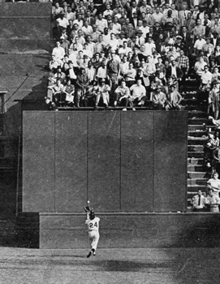An Indian chief on the Northwest Coast was named Unable-to-Fornicate.
Private correspondence of H.L. Davis to H.L. Mencken, cited in The American Language, 1937 edition.
“Maybe if we put on some Marvin Gaye . . .”
I’ve been called to the Pacific Northwest by the Bureau of Indian Affairs (Motto: “Yes we have nothing to do, but so what?”) because of my specialized expertise in the treatment and cure of impotence. A premature bout of . . . er . . . sexual dysfunction in my twenties–like Hemingway’s Jake Barnes in The Sun Also Rises–put me hip to its causes and cures.
“Vi-a-gra, Ci-a-lis, Vi-a-gra, Ci-a-lis . . .”
The cause? Doesn’t really matter, does it, although poor nutrition plays a part. The cure? To paraphrase real estate brokers, who say the three rules of real estate are location, location, and location: zinc, zinc, and more zinc.
Why else would there be so much folklore surrounding the aphrodisiac qualities of oysters, the most zinc-rich food there is? As Louis Jordan says to women trying to keep men from mauling them, “Leave that seafood high on the shelf!”
Louis Jordan, telling women to “Look Out.”
It shouldn’t be a hard sell. After all, the Wampanoags of Cape Cod ate clams like they were going out of style.
But I gotta get through to these guys, get them to understand that sitting around watching the Seahawks and drinking beer is no way to satisfy your woman.
My first patient is Come-Too-Soon, a guy who gets it up but falls before her time has come, if you catch my drift. “Come in,” I say as I hear him knock.
“Great white sexual therapist,” CTS says by way of preliminary obeisance, all of which is neither here nor there as far as I’m concerned.
“Have a seat,” I say, and we begin to palaver. “What seems to be the problem?”
“Squaw say she unsatisfied,” he says with poorly-concealed embarrassment.
“You’re done, she’s not?” I say, cutting to the chase.
“Paleface too blunt, but you nailed it.”
There are no easy answers to this problem, but there are some answers. “What are you thinking about when you’re . . . uh . . . doing it?” I ask.
He snorts, incredulous at the hyper-reflective character of the white invader. “What you think I think about? I’m boinking a beautiful woman–what does thinking have to do with it?”
I have to bring him out of the primitive circle-of-life consciousness he currently views the world with, into the linear, square world of the white man. “You ever seen highlights of the 1954 World Series between the New York Giants and the Cleveland Indians?” I ask.
He turns his head, consumed by bitterness. “You kidding? Of course I know the over-the-shoulder catch–‘The Catch, blah, blah, blah. What’s that got to do with . . . my manhood in bed.”
“It comes down to this,” I say. “When you’re huffing and puffing away, you’ve got to distract yourself from the wonderful experience you’re having. Remember Woody Allen . . .”
“The great Jewish-American Nebbish?”
“Yes, him. In Annie Hall. You have to think about something totally removed from what you’re doing to, uh, sustain your momentum. So think about Willie Mays making that catch of Vic Wertz’s drive, or something similarly . . . irrelevant to what you’re doing.”
Dawn, as we say back in Massachusetts, breaks on Marblehead. “Thanks, Doc,” Come-Too-Soon says. “Thanks a bunch.”
“No problem,” I say. “Be sure and give the receptionist your $10 co-pay on the way out.”
“You take wampun, right?” he says, referring to the quahog clam shells Native Americans used as currency.
“Not usually, but I’ll make an exception in your case. If you promise to eat the clams first.”
He’s gratified, but I cut off our interaction with a handshake–the white man’s tepid all-purpose gesture of greeting or farewell–before he can offer me his wife as a token of potlatch, the ritual of the Native Americans of the Pacific Northwest by which rivals seek to ruin each other by giving gifts that the recipient is unable or unwilling to equal.
I check my clipboard and see that Unable-to-Fornicate is next–a difficult case. “He’s in examining room 3,” the nurse says.
I burst in with all the bogus bonhomie I can muster. “Hello, Mr. Fornicate!”
“Please, Doc–call me ‘Unable’,” he says, nervous to put himself at ease.
“Fine, fine. So,” I say as I settle myself down in a chair opposite the examining table with the casual air of sensitive doctor Alan Alda in M*A*S*H. “What seems to be the problem?”
“You got my name right there on the clipboard. It ain’t ‘Dancing With Wolves.’”
“That’s not necessarily a bad thing. You ever danced with a wolf?”
“No.”
“They have terrible breath. You’d think they use Certs . . .”
“The candy mint?”
“Certs is a candy mint, but it’s also a breath mint,” I say, gently correcting him.
“Anyway, I gotta problem. Can . . . not . . . fornicate. At all.”
“Okay, well let’s check your vital signs.” I gave him the once over: pulse, blood pressure, temperature, moccasin size. All seem normal.
“Everything checks out,” I said, news that he didn’t seem to like to hear. “Anything else going on I should know about?”
He doesn’t look me straight in the eye, so I know something was wrong. “Is this the only name you’ve gone by?” I ask after a moment of uncomfortable silence.
“Well, no. It’s . . . complicated.”
“So . . . explain.”
“White man . . . Bureau of Indian Affairs . . . they try to control names.”
“How so?”
“They say we must have name of our father, which upsets our name-system.”
“What was your father’s name?”
“No-Like-Foreplay.”
“And your mother?”
“Dinner-and-a-Movie-First.”


Without you Con, we would know so little of the real American history!